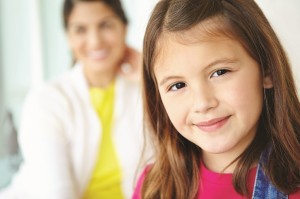 School holidays are upon us, a time for children and young people to enjoy with friends and family, a real opportunity to play, explore and generally chill! Some young people, however, have ongoing responsibilities which may prevent or reduce the time they have for themselves – young carers are one such group. There are 166,363 young carers in England, 9% of which care for 50 hours a week or more.
School holidays are upon us, a time for children and young people to enjoy with friends and family, a real opportunity to play, explore and generally chill! Some young people, however, have ongoing responsibilities which may prevent or reduce the time they have for themselves – young carers are one such group. There are 166,363 young carers in England, 9% of which care for 50 hours a week or more.
Young carers often have poorer health outcomes which impacts on their physical, emotional and psychological wellbeing. Over the last year we have been raising awareness of young carers’ needs with school nurses, who have really taken on board the need for support. The young carers’ pathway has been particularly helpful.
Despite the summer holiday, it’s worth noting many school nursing services provide a year round service and can be a vital resource for children, young people and families. Many teams use this time to focus on specific young people who may need support outside of school, including young carers.
Partnership approaches to supporting young carers are essential: school nursing teams are working closely with youth workers and third sector organisations such as the Children’s Society and Carers Trust, to support young carers like Sophie. Read her incredible blog and think about what difference you could make to the health and wellbeing of young carers.
Sophie’s story:
 I have been a carer from the age of 11. I cared for my grandma who had multiple health issues and cared for my sister. I still care for my granddad at the age of 20. In September, I am going to study Social Work at a local university. But all of my caring responsibilities will stop and my mother will become a full-time carer. I didn’t realise that I was a carer and could access support until I turned 18 and started to study Health and Social Care at a local college and I became active on Twitter.
I have been a carer from the age of 11. I cared for my grandma who had multiple health issues and cared for my sister. I still care for my granddad at the age of 20. In September, I am going to study Social Work at a local university. But all of my caring responsibilities will stop and my mother will become a full-time carer. I didn’t realise that I was a carer and could access support until I turned 18 and started to study Health and Social Care at a local college and I became active on Twitter.
Until then I didn’t know that you could access to healthcare services to get support. Had I known this, I would probably be in a better position right now, or I may have lost my caring responsibilities. Would I want this?
Ask any carer and they will probably say “no” to you. Schools are involved in the health care system too, as schools have school nurses. I wasn’t aware that I was a carer and wasn’t aware that I had a school nurse either. Had I known I was a carer, what would I have wanted from the health care system?
We’ll start with an identification of a carer. What is a carer? How can we identify one? We can definitely answer the first question; the second one is a little harder, as every carer is different. You can’t identify a carer easily, but with some simple questions it is possible. Even a simple “do you care for or help to care for someone at home?” would be revealing.
I know that it is the responsibility of Social Services to complete a carer’s assessment, but I believe GPs, school nurses and other healthcare professionals should take some responsibility. We all have the responsibility to protect children, so why can’t this include identifying carers? GPs, nurses and other healthcare-related professions should be trained in dealing with carers. A simple “how are you?” can open a window of opportunities for a child or young person to talk about their life at home. Whilst at school, teachers and school nurses could join together in the identification process. If a child is becoming behind on work, investigate this. Make the school nurse service less secretive, which brings me to my next point.
I never knew that there was a school nurse at my school. It was a hidden service, it was never advertised to us, we never knew of its whereabouts, when it was available and how long for. A school nurse service should be readily available in all schools and it should be widely advertised around the school. It is especially important in secondary schools, where there is added pressure, in my opinion. Exams, peer pressure and many other changes. All school nurse services should be approachable – students shouldn’t feel embarrassed to access them. School nurses should have an active role in educating school staff and other pupils, so they are more “carer-aware” – they do this with safeguarding and health needs, so why not with carers’ issues? Education breeds awareness. Awareness lessens stereotypes and stigmas. This would make it more “normal” to be a carer. You wouldn’t stand out, like most young carers are afraid to do. In colleges I think the support is a lot better; I was able to access counselling, for example. I was more aware that the service was there as we were told about it and were given information on it. We also had mentors that we could approach. An idea could be to have older students act as mentors that other students can talk to. I was a peer mentor and this is an idea that should be rolled out in schools. After all, it is often easier for young people to talk to other peers.
Being a carer is damaging emotionally, socially and mentally, not just physically. It is a full time job, filled with worry, guilt and sacrifice. As young carers, we lose our childhood. Mental health can suffer a lot: I know this first-hand. I worry a lot, constantly about the littlest things. I have low self-confidence too, though that is mostly because of being bullied throughout my school years. My personality has evolved as a result of being a carer too: I’m a perfectionist. You tend to find that with carers, in my opinion. Everything has to be done perfectly.
We put others’ needs before our own, out of love. Community nurses, GPs and school nurses may come into regular contact with a carer or the person that the carer is caring for, therefore health care professionals should link to social care and also be made aware of different services that can help a carer. Counselling, mental health services, support groups, leisure centres (for physical exercise), local clubs for children and young people to have respite. All of these are important, as a carer has needs too.
Once a carer has been identified then all services that they come into contact with, i.e. school, GP, community nursing etc., should be made aware so that they can observe and protect that child/young person and their needs. They are people too. These are just some of the things that I would have benefited from as a carer and things that I feel both carers and health care professionals would benefit from. Better practice means that carers are better supported and don’t feel as different and don’t suffer as much as they do now, emotionally, socially and mentally. Yes, suffering is the right word. We need support, a change in the health care profession can help alleviate or even eradicate this. Just think, if this was you, if you were a carer, would you want the above?
Featured image via iStock. Used under license.

2 comments
Comment by Bren posted on
Hello Viv,
Thanks for the blog that brings stark reality to the forefront.
A phenomenal insight through Sophie's experience through early life.
Information and access to services , and awareness of being a young carer are clear messages, along with how cna front line services bets support a real need.
Thanks for a great blog and a privilege to read and personally reflect at a number of levels.
Bets wishes,
Bren
Comment by Sara posted on
I agree with Bren, thanks for the insight. I was a young career from age 5 and it definitely negatively impacted my self esteem and educational achievement. On the other hand my memories of many days are me sitting on my Mums lap being cuddled in between my caring duties warms my heart. Also, being so young I used to treat her to a lunch of 10+ biscuits. We were both malnourished I am certain.